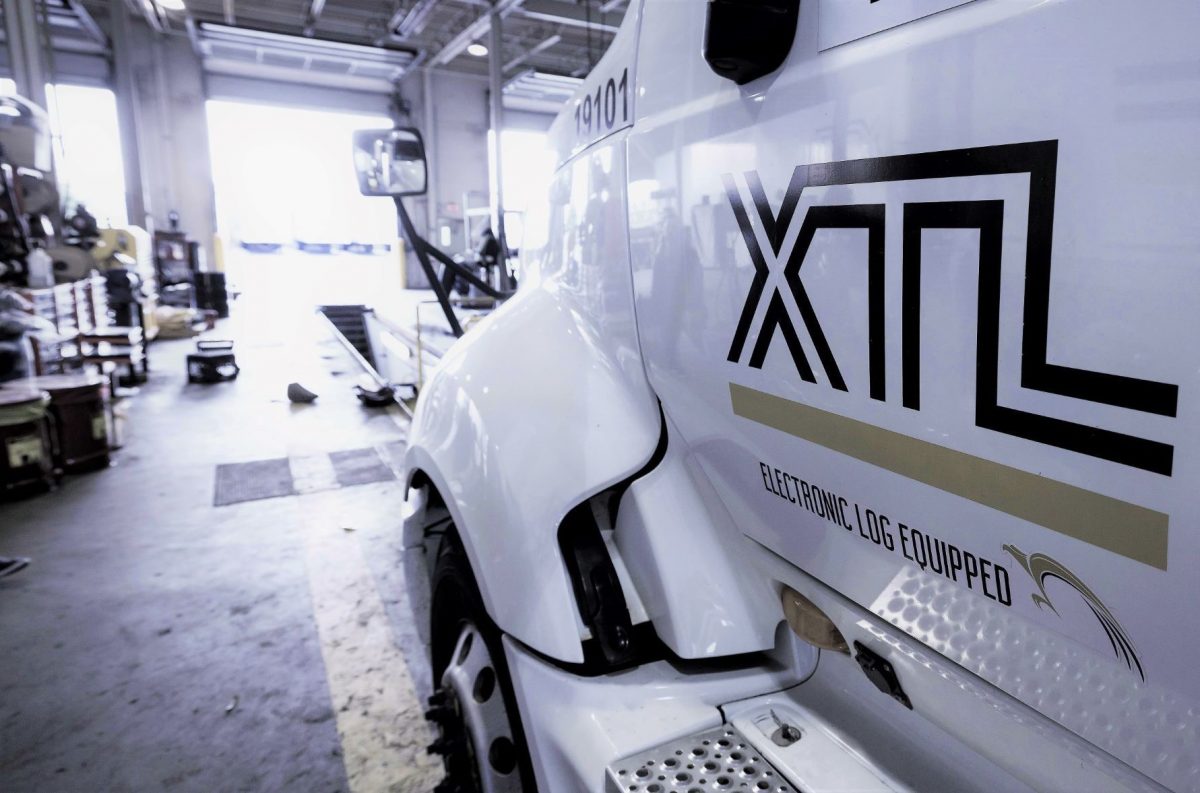Factors impacting the part shortage and what it means for companies and consumers
We all know there is a supply chain crisis. Alongside the pandemic and rising costs, it has dominated the news cycle over the last few months. Issues in the supply chain have directly impacted the trucking companies and the industry that supports it, triggering a severe shortage of parts which, in turn, has driven up the costs of both new and used trucks.
Rising prices for truck parts and both new and old trucks
Parts shortages, particularly with chips and rubber, are impacting the whole automotive sector, including commercial and consumer vehicles alike. In response to this and ongoing labour shortages, manufacturers have increasingly shifted their focus to the consumer market. This has limited the availability of new trucks, and as supply has dwindled, prices for new equipment have risen. Used trucks, however, have also sharply increased in price as companies increasingly turn their attention to used vehicle options. Used truck tractor prices rose in Canada by 14% this year alone, while used vocational trucks cost an additional 20%, according to used truck dealers Ritchie Bros.
These shortages are happening just as trucking companies have a unique opportunity amid increased capacity to expand their fleets and step in to help mitigate supply chain issues. Instead, many are committing additional resources to sourcing the parts needed to keep their older equipment in service as orders are reduced, delayed or even cancelled outright.
From the pandemic to freak weather events- a perfect storm.
Equipment shortages began early in 2020 when the pandemic shut down factories and led to a scarcity of the computer chips used in many modern goods, including medical equipment, cell phones and, of course, trucks. Most modern trucks contain 15 to 35 chips powering everything from rear cameras to emergency brakes. However, while the chip shortage continues, a perfect storm of weather, labour and other issues have now made things much worse.
A year after the pandemic began, the Evergreen ran to ground and blocked the Suez Canal for six days, virtually freezing delivery of various goods, including oil, and doing long term damage to the global supply chain. At the same time, global ports were heavily affected by government-mandated shutdowns and labour shortages and continue to be. Pandemic related lockdowns and illness have slowed down the movement of goods and contributed to a growing shortage of the labour needed to keep these goods moving. And this is occurring even as e-commerce and government stimulus increases demand. Trucks and parts are often caught in the middle as manufacturers, ports and even distribution centres are affected.
Weather events have exacerbated the impact of these events. Tornadoes, hurricanes, forest fires and massive winter storms have shut down highways and ports alike, slowing down the delivery of goods including parts.
Stockpiling is also a global issue for some products. Tire manufacturers continue to struggle with China stockpiling rubber just as the world’s rubber crop was heavily damaged by disease and floods. Volatility in steel pricing spurred by trade wars and other factors have led to issues with certain parts. The availability of specific lubricants, including oil, have been affected by halts in production caused by the pandemic and weather events. Even the wood used to build trailer beds has been in short supply.
The delivery of these products has been an ongoing issue throughout the pandemic. Many other parts, which used to ship overnight, are now taking weeks, with some orders cancelled outright. Other original equipment manufacturers (OEMs) have limited the number of parts that companies can order to manage availability.
Even though demand for trucks and parts is surging, material shortages have halted growth
What does the shortage of truck parts and equipment mean for you?
The higher costs of parts, labour and equipment, have translated into higher operating costs for transportation companies. It is also reducing the capacity of fleets even as demand for their services has grown. These higher costs are often passed along to customers, who then charge higher prices to consumers.
The end could be in sight, but price reductions may lag
Most experts believe that the parts shortage will ease, but they also warn that the existing pricing structure may outlast the parts shortage, at least in the short term as manufacturers catch up. While much of the rising cost associated with the parts shortage is unavoidable, our customers can take steps to reduce the impact on their operations and consumers.
How XTL secures your supply chain
XTL runs new-model equipment. Our tractors have an average age of two years, while trailers are five years old on average. We are constantly turning our fleet over to take advantage of greater aerodynamics, fuel savings and producing lower emissions than ever before.
To accomplish this, we leverage long-standing partnerships with suppliers whom we have worked with since our inception, including Manac (for trailers) and International (for tractors).
We plan in advance for new equipment and have recurring annual orders with these suppliers. Supply chain issues might reduce order sizes or cause delays, but our established relationship with suppliers and our proactive approach keep us at the front of the line for deliveries.
We also have full-service bays at many of our terminals to ensure a well-maintained fleet for both your inbound and outbound logistics. And, of course, we keep spare parts stocked to further reduce downtime for equipment and keep trucks on the road.
What you can do to protect your interests
XTL continuously works to mitigate the effect of these shortages and rising prices on our customers through the combined key strengths of our three distinct offerings: asset-based transportation, logistics and warehousing & distribution. By leveraging an end-to-end solution, like that offered by XTL, you can take advantage of our extensive network of partners and our dedicated team of professionals focused on helping you develop effective, efficient supply chain solutions throughout North America. Learn more about the end-to-end solutions offered by XTL.
